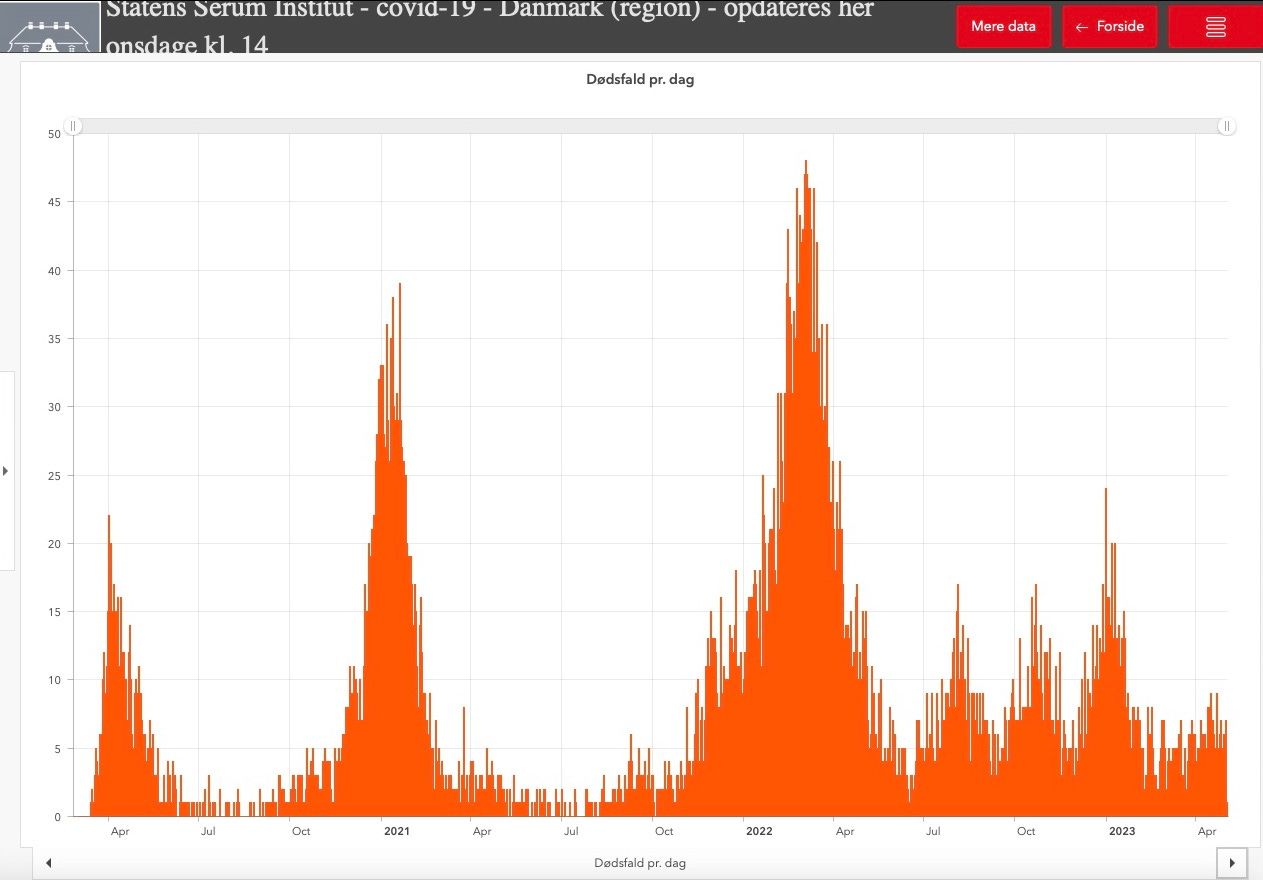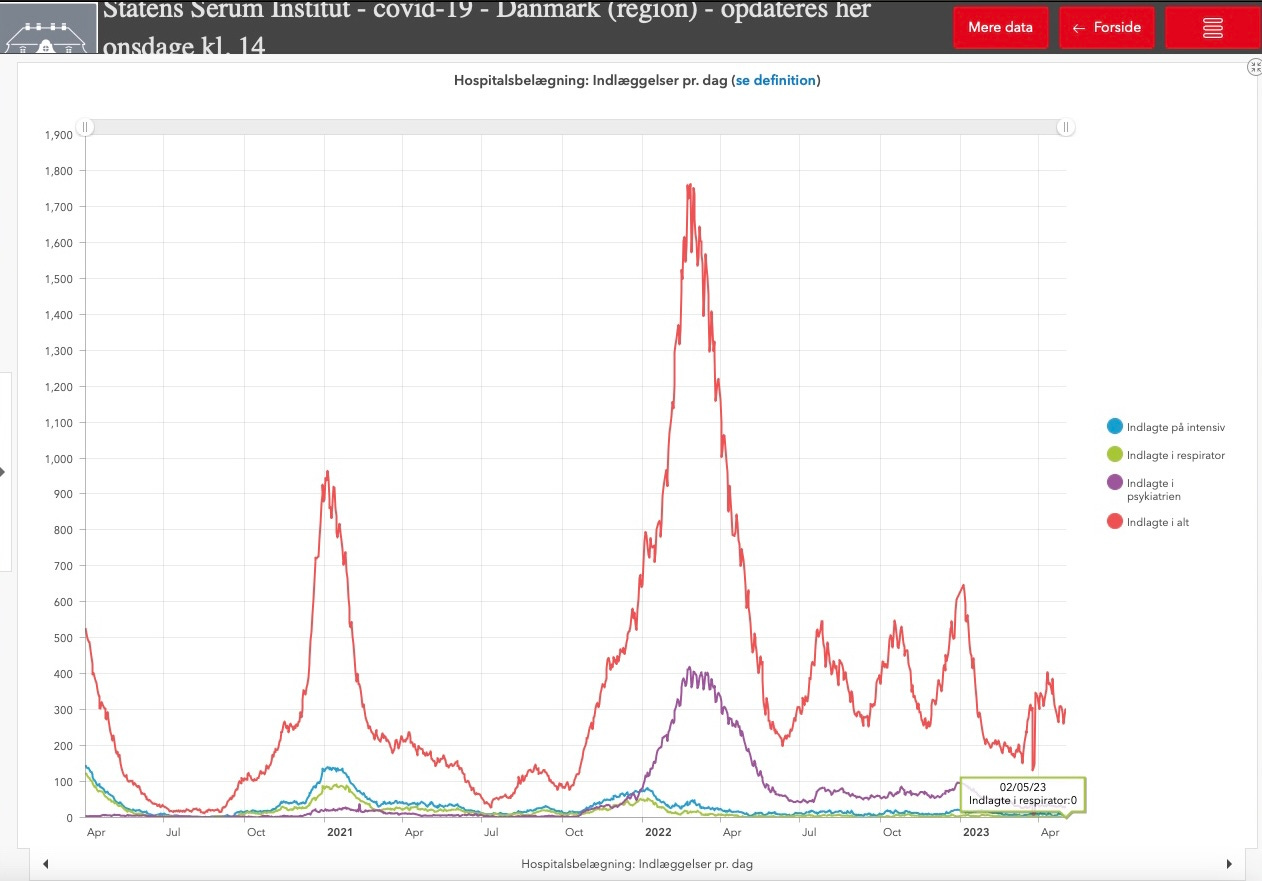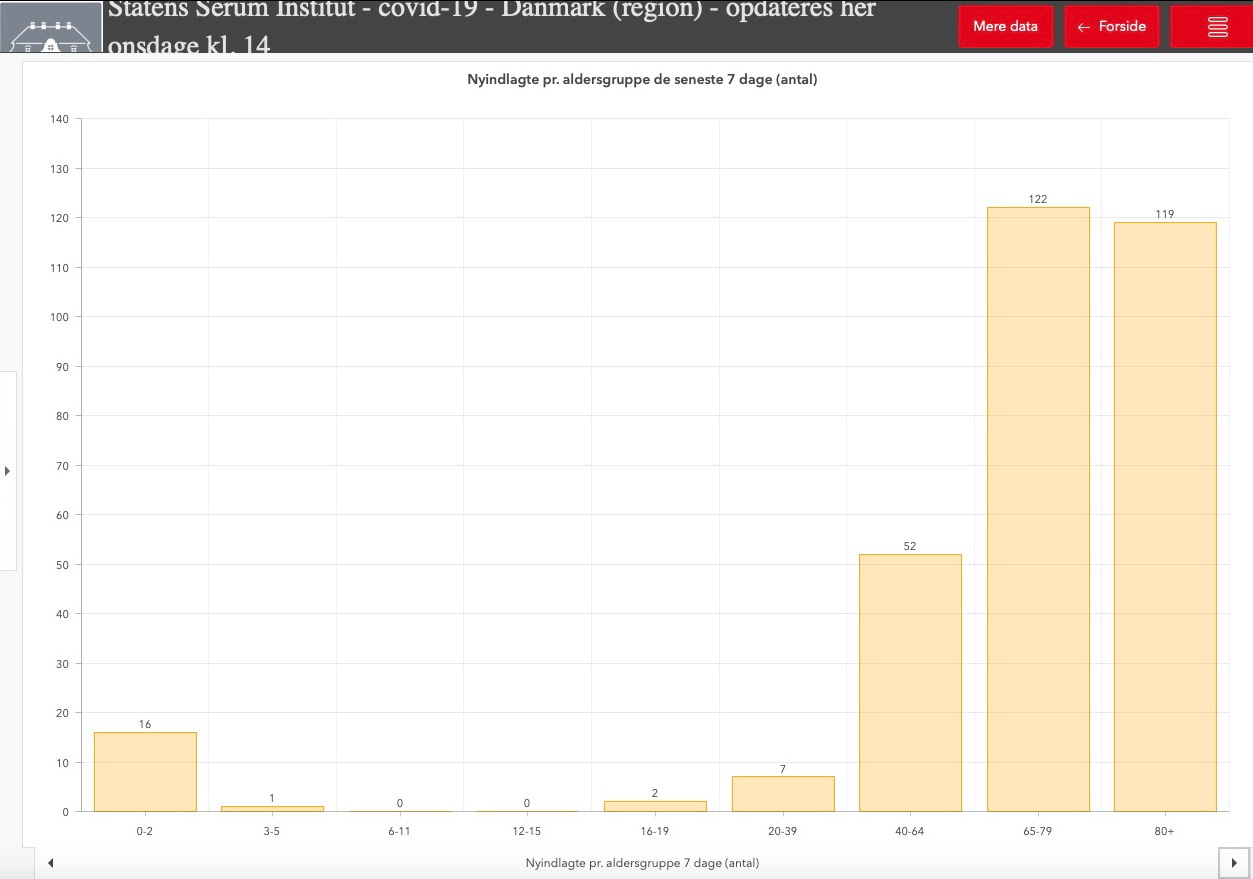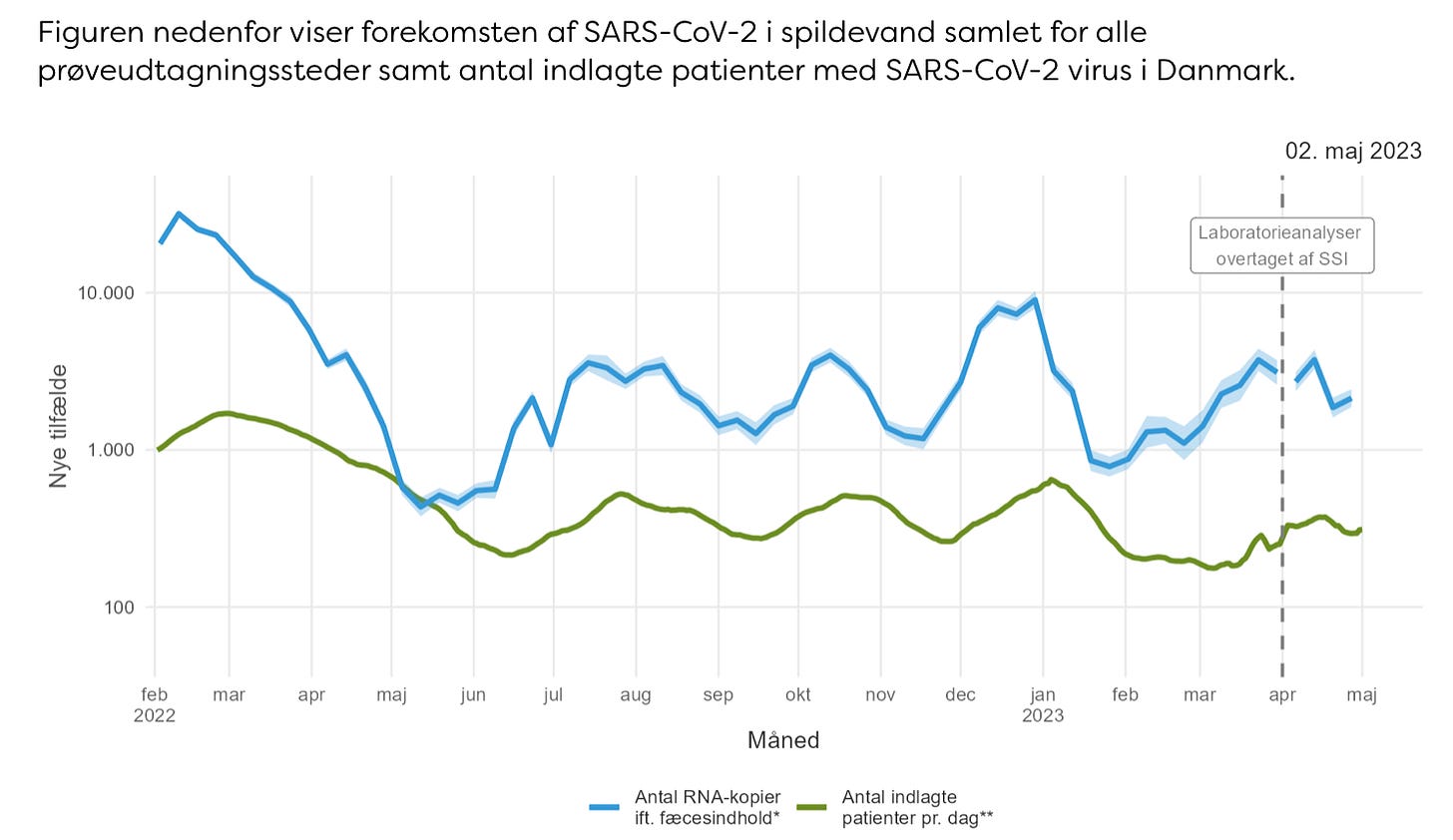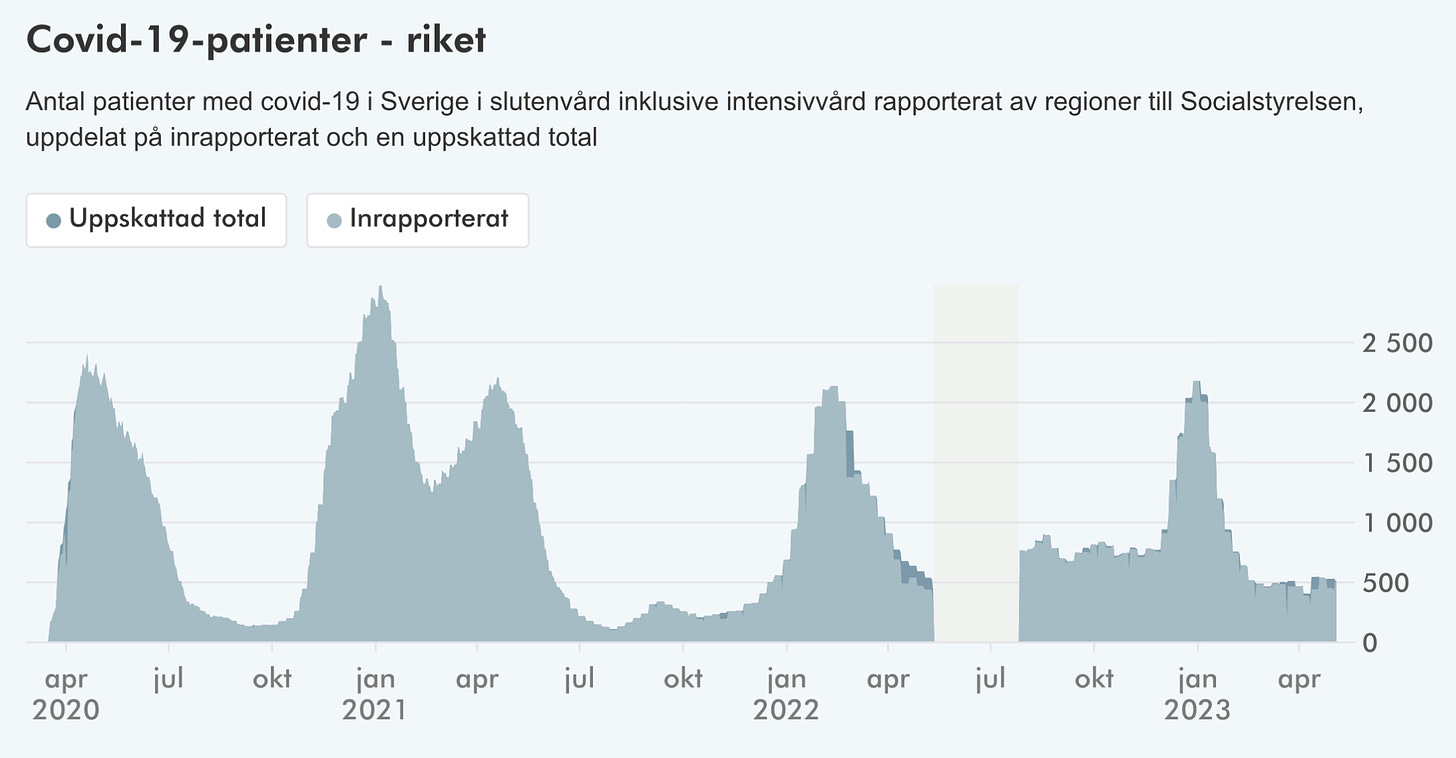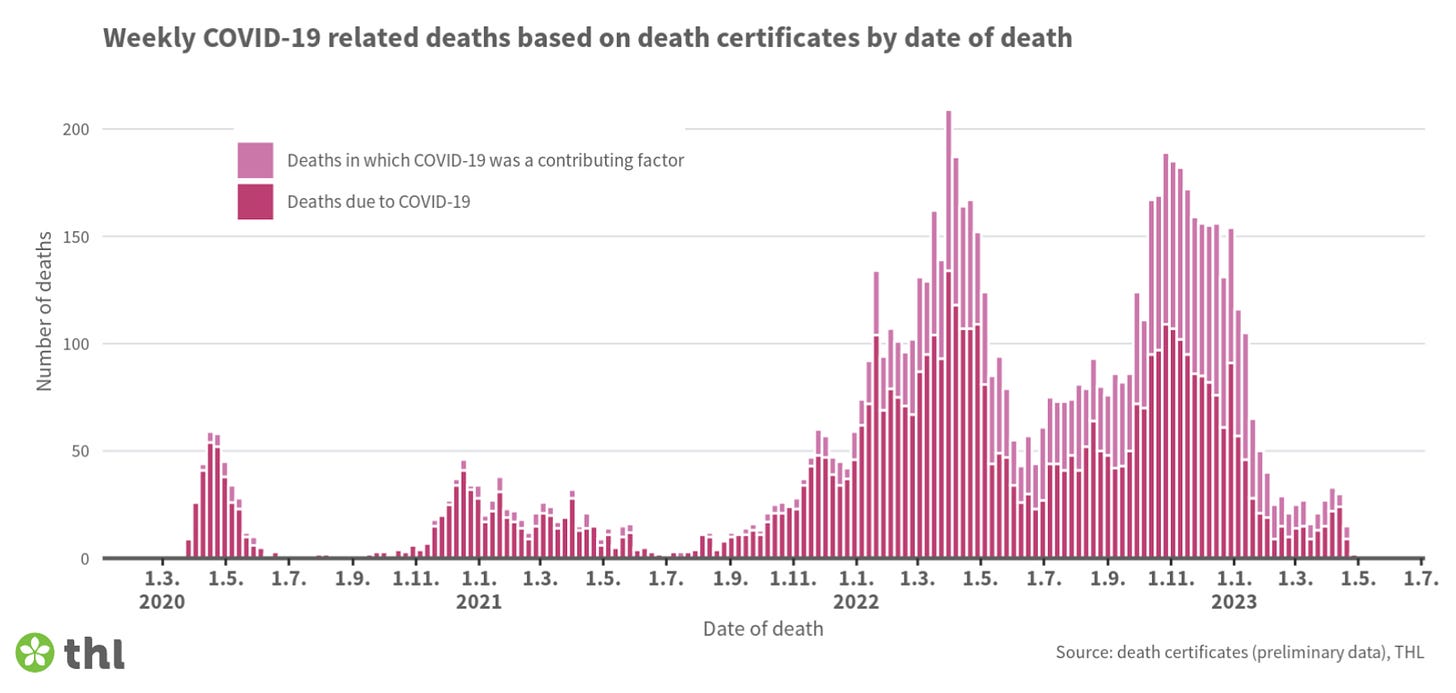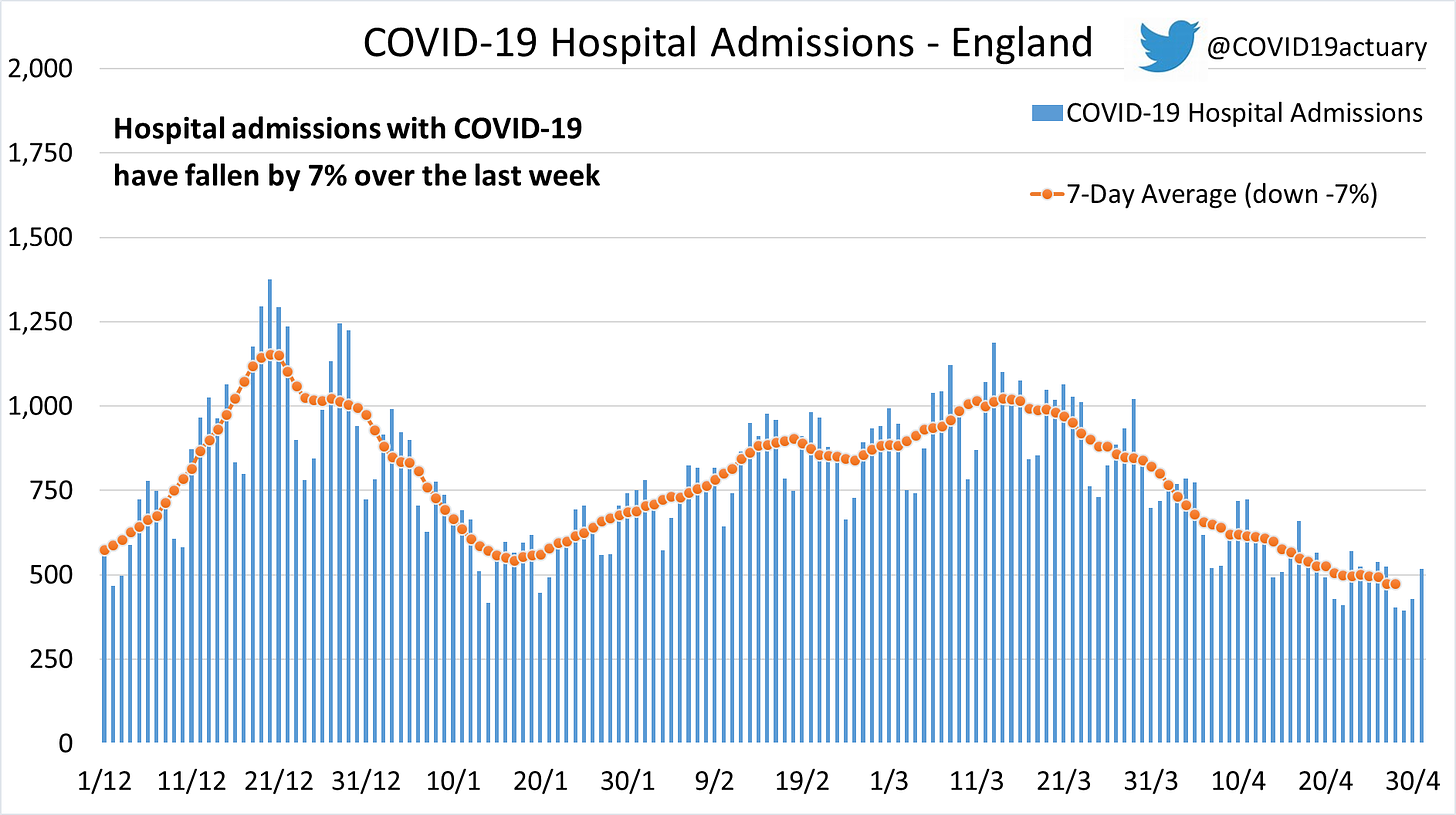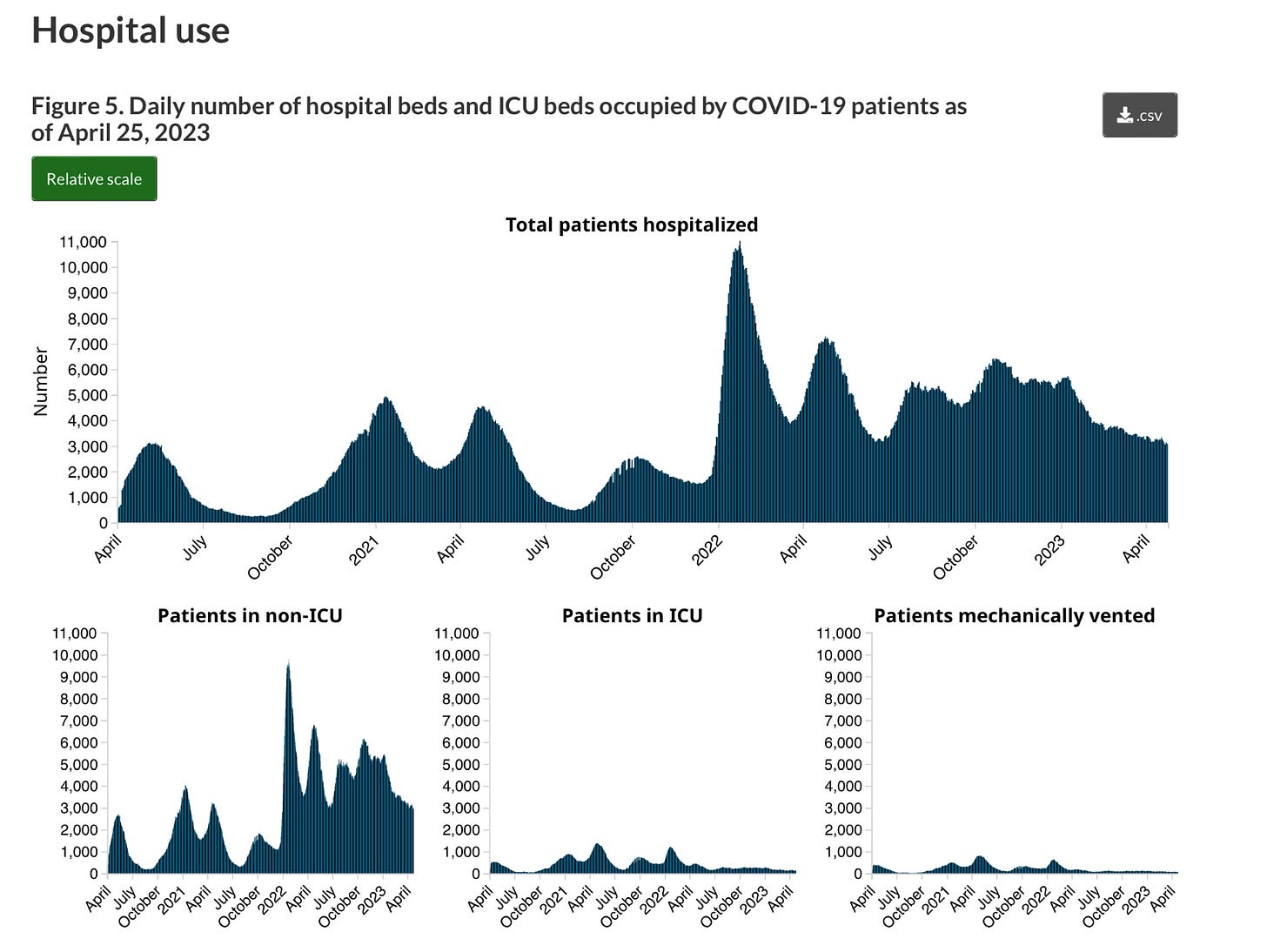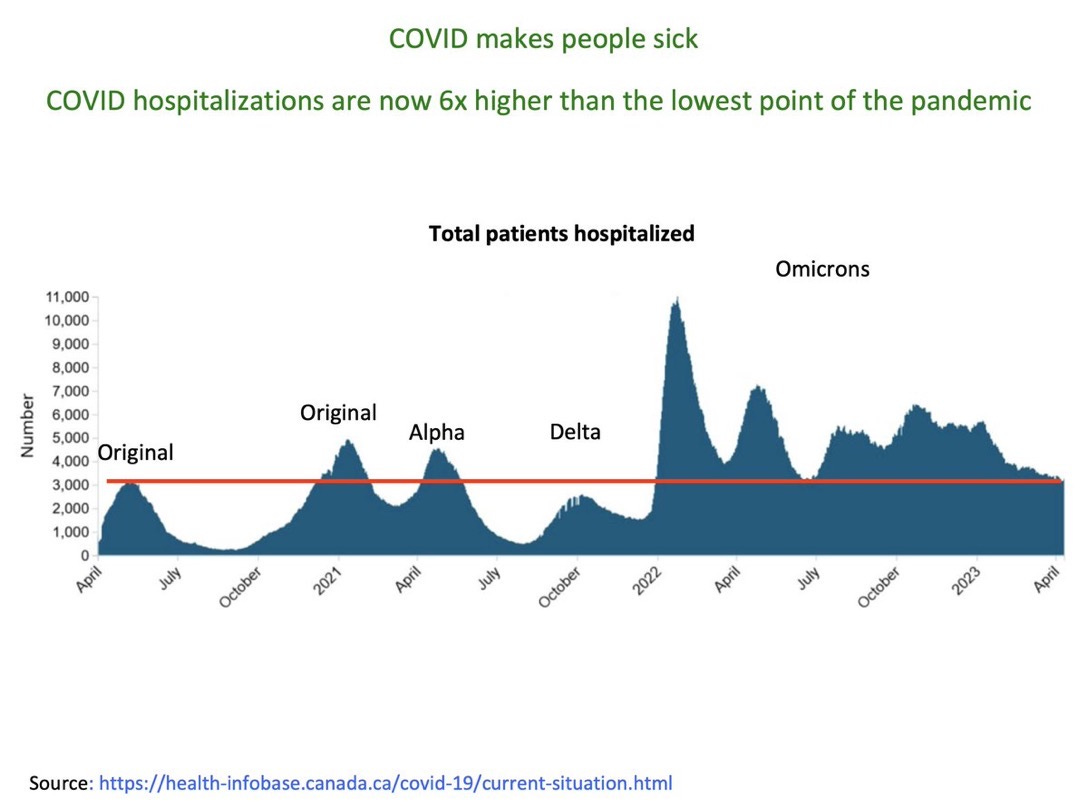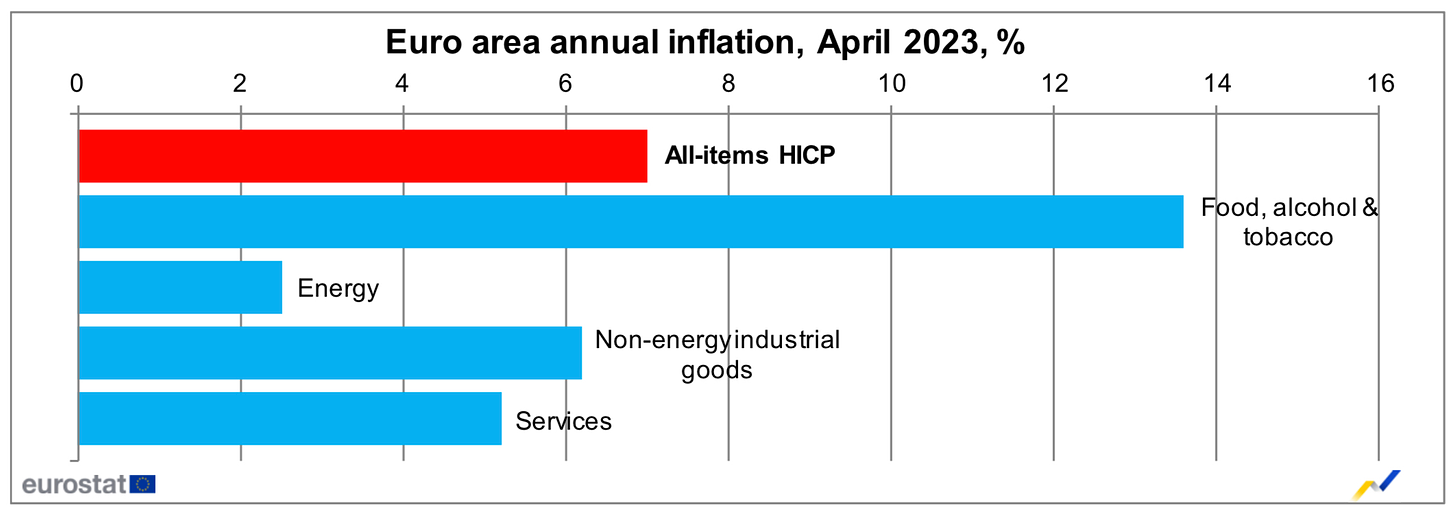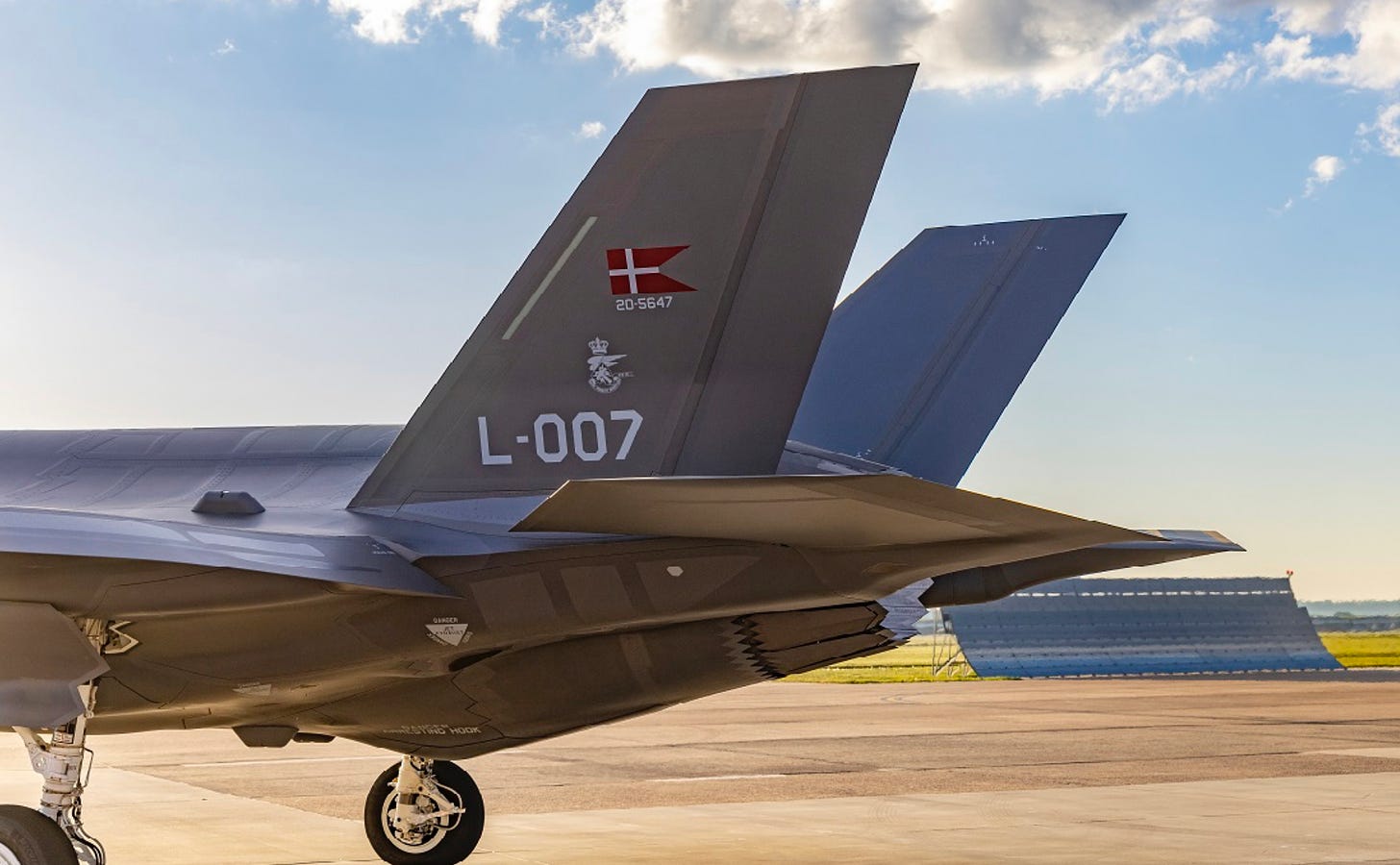🚨Heads Up🚨
For my readers in Denmark, circle May 15th on your calendar and make sure you don’t have to drive anywhere on that day. On the 15th truck drivers are planning to cause gridlock all over Denmark to oppose a tax on polluting big rigs that run on gas or diesel. The environmental levy would charge 1.30 Danish kroner per kilometer for long-haul truckers. The measure is due to come into force on January 1, 2025. Truckers plan to use their rigs to block roundabouts and on-ramps to highways across Denmark in protest.
🦠Pandemic🦠
🇪🇺🦠
The European Centre for Disease Prevention and Control is trying to prepare Europe for the next pandemic by looking at lessons that can be learned from the last three years of dealing with COVID. In a report published this week, the ECDC identified four key areas where improvements need to be made.
The first is an acute lack of healthcare staff to meet the COVID demand. The situation was exacerbated by the pandemic putting frontline staff in a pressure cooker resulting in “significant burnout, causing staff to leave the workforce or have a decreased capacity to work.” It also warns that with hospital budgets returning to ‘normal’ as COVID emergency funding diminishes or ends altogether, it will further handicap efforts to retain or attract new workers.
“Without investment in the retention, recruitment and training of public health professionals, none of the other components can function in a public health crisis. In addition, a demographic crisis is looming within the existing public health workforce in the EU which, along with the EU population, is aging. Incentives to attract young professionals to the field of public health are urgently needed.”
The health agency says overall planning and preparation need to be seriously improved before the next pandemic. It says most European countries had outdated pandemic preparedness plans. And it also noted the need for public health institutes to have a much more formal role in pandemic response decision-making.
“Countries reported the need to establish a formal role for the public health institutes in giving evidence-based advice and avoiding politicization of this advice or the overall response to health threats. Better representation of public health expertise at higher levels in decision-making bodies and crisis management structures is required. Similarly, a clear distinction should be made between political decisions and expert opinions. Lack of evidence, competing or conflicting priorities and recommendations provided by different advisory bodies, unclear roles and the fragmentation of the health system slowed down decision-making or made it difficult during the COVID pandemic.”
The ECDC says international cooperation also needs significant improvement because “in many cases, this was not optimal during the pandemic.”
Communication was another area identified in the report as having significant room for improvement, especially in combating the tidal wave of misinformation. The ECDC says European health institutions were largely unprepared to deal with misinformation during the pandemic. It says trust in government and institutions is crucial during a pandemic but the foundations of that trust must be built before any pandemic and not during one. It strongly recommends an emphasis on clear transparent communication, and increasing risk communication skills across health institutions, including utilizing and increasing social media presence.
The last area needing improvement was data, surveillance, and digitalization. This also includes building in the capacity across the EU nations to quickly build out PCR testing and genome sequencing infrastructure. The agency says testing infrastructure was too slow in being scaled up and was far from being uniform across European countries. On the data and digitization side, it says Europe was largely caught with its pants down with systems built on the fly during the pandemic instead of being ready to go beforehand. It says data is key to managing a pandemic, informing decision-making, and in turn enabling communication to the media and the public.
The report in full can be found in English HERE.
🇩🇰
The Danish Statens Serum Institute has reported 564 new COVID infections in the last week (wildly underreported) along with another 42 coronavirus deaths. To date, 8,572 lives have been lost in Denmark in the pandemic.
The seven-day positivity percentage is 12.5%, down slightly from week to week.
-
COVID hospitalizations (264) are down (-31) while the number of severely infected people in intensive care (9) also dipped slightly (-2). There isn’t currently anyone on a ventilator.
The number of infection-related admissions to a psychiatric facility (29) inched downward (-2).
Seniors over 65 remain the most vulnerable to severe infections requiring hospitalization as the age group made up 75% of all COVID hospitalizations in the last week.
-
Scaled back COVID wastewater surveillance is showing a slight uptick in coronavirus activity.
-
The number of sequenced positive test results is ludicrously low in Denmark with just three positive tests undergoing genome sequencing last week and a mere nine the week before that. For what it is worth based on this tiny sliver of data, XBB.1.5 remains the dominant strain accounting for around half of the sequenced test results. Overall, Denmark is now virtually blind to infection spread and the variants driving it.
-
Getting infected with COVID is much riskier than any side effect of vaccination. Vaccine-related blood clots, a very minute risk during vaccination, were one of the things fueling vaccine hesitancy and providing fodder for vaccine misinformation. New research shows the blood clot risk is much higher as a side effect of infection than vaccination.
An excerpt from a study conducted as a collaboration between the University of Copenhagen Department of Cardiology and the Statens Serum Institute published in AHA Journals:
“… the risk of blood clots. It was three times greater in the group of infected than among the vaccinated. The study also shows that there was a greater absolute risk of death among those infected than among those vaccinated, 93 per 10,000 versus 7.6 per 10,000."
🇸🇪
In Sweden, COVID hospitalizations (514) have increased (+60) week to week while the number of severe infection cases in an ICU (6) has declined (-7).
-
Pandemic-related hospitalizations have also increased in Sweden’s capital region. In its now monthly pandemic update, Region Stockholm says there are 194 coronavirus-infected people in hospital, 57 more than there were four weeks ago. Just three pandemic patients are in intensive care.
Chief Physician Johan Bratt:
“That the number of people treated for COVID is increasing in this report is most likely a result of natural variations over time. There is no indication that it is part of an upward trend. We have no increase in coronavirus patients in our intensive care units.”
Bratt adds that efforts are underway to administer a 4th booster dose to elderly seniors and other high-risk populations.
“Vaccination with a sixth dose is progressing and that the number of seniors over 65 who are getting another inoculation continues to increase.”
The region emphasizes while there are just 194 infection-related patients in the hospitals each one requires treatment “in an infection-proof manner” requiring extra healthcare resources.
The region has also suffered another 33 pandemic deaths in the last four weeks.
-
Hospitals in parts of Sweden are struggling to recruit enough doctors and nurses to cover the summer months when regular staff tends to take their vacation time. According to a survey conducted by Radio Sweden five of the country’s 21 health regions say the situation in filling summer vacancies has become even worse than it was last year. Filling nursing positions is the most challenging.
Healthcare workers in Sweden, as in other countries, struggled with the stress of the pandemic leading a number to take leave due to being burned out or to quit altogether. The situation in Sweden due to its flawed pandemic approach exacerbated the problem of disenfranchising already stressed-out frontline healthcare workers.
-
A new Swedish study has found that COVID vaccines do not cause menstrual issues. The study included almost three-million women 12 to 74 years old over a two-year period beginning when vaccinations began in December of 2020. Study researchers also poured over all inpatient and specialized outpatient care records.
The study concluded that any link between vaccinations and bleeding among post-menopausal women was “weak and inconsistent.” Even less evidence was found for premenopausal women.
“These findings do not provide substantial support for a causal association between SARS-CoV-2 vaccination and healthcare contacts related to menstrual or bleeding disorders.”
The study can be found HERE.
🇫🇮
The Finnish Institute of Health has registered 1,775 new infections (underreported) in the last week along with 158 more pandemic deaths.
🇳🇴
The Norwegian Public Institute of Health issues a bi-weekly pandemic update. The next one is due next week.
🇬🇧
COVID hospitalizations in the United Kingdom continue to drop. According to the COVID Actuaries Response Group, new infection-related admissions dropped by another 7% over the last week. Admissions fell in every region with the exception of the South-East where they increased.
The virus reinfection rate, or R0, in the UK is calculated at 0.96, a slight week-to week increase. Anything over 1 signals an increasing epidemic.
🇨🇦
The Public Health Agency of Canada is reporting 5,207 more infections (underreported) and 84 more lives lost to the virus in its latest weekly pandemic update. Total to date coronavirus deaths in Canada now surpass 52,000.
The weekly positivity percentage is 10.9%, a slight week-to-week decrease.
-
Across Canada, COVID hospitalization has dropped from one week to the next. In the week ending April 25, the total number of beds in use by an infection patient dropped by 261, to 3,072 occupied beds. General admissions made up most of the decrease falling from 3,193 to 2,944. The number of severely infected people in intensive care was 140, a decline of 12. While there were seven fewer people on a ventilator as the numbers eased to 70.
-
Epidemiologists continue to wave a warning flag over the high level of COVID hospitalizations in places like Canada, and other countries, where even at the lowest point between infection waves daily infection-related hospitalizations remain very elevated.
💉
The first-ever vaccine against the RS virus has been approved by the U.S. Food and Drug Administration although it has at least one more hurdle before it could go into public use. The Arexvy vaccine is made by the pharmaceutical company GSK. The FDA approved the vaccine for use among seniors over 60. Another RSV vaccine developed by Pfizer could also be approved for use by the end of May.
Before the GSK vaccine can go into use it must next be approved by The Center for Disease Control and Prevention. This could happen sometime in late June.
While seniors are certainly at risk, the RS virus poses the most significant threat to infants who are at the highest risk of severe infection requiring hospitalization. An RS virus vaccine for infants will come up for approval in the United States later this year. This one, developed by Pfizer, is designed to be administered to pregnant women with the vaccine providing protection against the RS virus to both mother and child.
⚡️Energy Crisis⚡️
🇪🇺
Inflation is estimated to nudge upward slightly last month according to preliminary numbers from the European Union’s statistical agency, EuroStat. It says inflation is expected to increase to 7% in April, up slightly from March’s 6.9%.
This has stoked concern that Europe may dip into a recession.
🇫🇮
Energy bills have increased as of the first of May in Finland. Back in the fall during the height of the energy crisis, the Finnish government reduced the value-added tax (VAT) to 10% on electricity bills to try and brunt the pain on households. But as of May 1, the VAT returned to its normal 24% and electricity bills will now reflect that change.
🇸🇪
The food price crisis in Sweden appears to be easing just a little. The Swedish price comparison website, Matpriskollen, estimates food prices declined by 0.4% in April compared to March. The agency says this marks the first month-to-month drop in food prices almost since the pandemic began.
🇩🇪
Germany is pulling out all the stops to protect its energy security. Bloomberg is reporting that Germany plans to at least double its LNG import capacities on the Baltic Sea island of Rügen. This is to safeguard against the risk of sabotage on a key gas pipeline from Norway. Germany now relies on Norway for about a third of its gas imports. After being almost entirely reliant on cheap Russian gas, before Russia pulled the rug away, Germany appears to have learned an energy security lesson.
Economy Minister Robert Habeck:
“We have to expect things to happen again. The government therefore plans with a strategic reserve, should a pipeline system somewhere fail again, or should gas supply be stopped again.”
🇺🇦/ 🇷🇺 War
🇩🇰/ 🇺🇦
Denmark has dipped into its Ukraine fund to put together another weapons package to help in the fight against Russia. Earlier this year, the Danish government set aside 7 billion Danish kroner (about $1.4 billion Cdn) to fund weapons shipments to Ukraine. In its largest weapons package to date, a majority of the Danish parliament agreed to send Ukraine, armoured vehicles, mine-clearing vehicles, other mine-clearing equipment, assorted ammunition, mobile field bridges, night vision goggles, and money for Ukraine to buy air defense systems. 50 million kroner will also go to NATO for non-lethal supplies to be sent to Ukraine.
Acting Defense Minister Troels Lund Poulsen:
“We know that the Russians have dug themselves in across the occupied areas of Ukraine with trenches, minefields, and other obstacles that are supposed to stop a Ukrainian offensive. The material in this donation package is important to pave the way for Ukrainian tanks and the armored infantry along the front lines.”
Foreign Affairs Minister Lars Løkke Rasmussen, who has just returned from Ukraine, said this weapons package is tailored to what Ukraine most needs.
“The Ukrainian fighting spirit is impressive. Ukraine is fighting for the security of all of Europe, and the need for military support remains acute. I felt that myself when I met with my Ukrainian foreign minister colleague in Odesa last week.“
The weapons package is being described as crucial to helping Ukrainian troops break through obstacles and minefields for their counteroffensive to retake occupied territory.
🇩🇰/ 🇷🇺
Denmark’s intelligence agency is warning that with Russia’s intelligence activities being severely crippled due to the mass expulsion of its agents posing as diplomats, it is now actively looking for other ways to spy on its adversaries. Among them, it warns Russia may be increasing efforts to recruit people living in Denmark for intelligence gathering and espionage. In a report released on Tuesday, the Danish Security and Intelligence Service (Politiets Efterretningstjeneste) warned that Denmark and the other 30 NATO member countries need to be extra vigilant.
“Russia's need to obtain information in Denmark has increased, and we, therefore, expect that Russia will try to use other methods to spy on Denmark. They could place intelligence officers in Denmark outside the diplomatic missions. These can be, for example, journalists, businessmen, and visiting intelligence officers.”
The PET also warned that Russia is also likely to step up cyber spying and espionage efforts online.
It says Denmark is of particular importance to Russia due to its geopolitical role in controlling the Baltic Sea and as an important NATO ally.
The report also warns that while Russia currently poses the “main threat,” in the future that dubious distinction will go to China.
-
Denmark is among a group of 36 countries that have signed a declaration to the International Olympic Committee demanding athletes from Russia and Belarus be barred from competing at the summer games in Paris.
Denmark's Minister of Culture Jakob Engel-Schmidt spoke to DR to say as long as Russia persists with its illegal invasion of Ukraine its athletes cannot have the opportunity to compete in the Olympic Games.
“We want to maintain and increase the pressure on the IOC. One cannot imagine Russia bombing innocent men, women, and children, while their athletes are winning medals at the Olympics at the same time. Neutrality does not exist in a country like Russia, where sport and state are inextricably linked. Therefore, it is important for the 36 countries that have signed the declaration, of which Denmark is one, to increase the pressure so that the IOC does not come up with crazy ideas and try to sneak the Russians into the Olympics through the back door.”
🇩🇰 🇱🇻
Denmark is prioritizing security in the Nordics and that means bringing home troops from overseas. Danish soldiers in Iraq will be expatriated by February of next year so that Denmark can beef up its military to deal with threats closer to home.
The Danish military is preparing a battalion of troops and equipment to be dispatched to the Baltics to serve alongside other NATO forces. The troops, up to 1,200 soldiers, will be stationed at a NATO base in Latvia for four to six months and then for the rest of the year remain on stand-by in Denmark to respond to any crisis that pops up in the Baltics.
Acting Defense Minister Troels Lund Poulsen:
"The time when we have reaped the peace dividend is over. This is felt not least in the Baltic countries, which are on the front line against Russia. We must take stock of that situation and ask ourselves where we, together with our allies, can best contribute to NATO and the security of the Baltic countries. The current security situation calls for a robust and long-lasting response to assure our Baltic friends that Denmark will always co-guarantor their security. We must prepare for the Danish presence in the Baltics to be long-term, and there is a need for a balance between having soldiers out and being ready to move out from Denmark.”
Poulsen adds that Denmark will maintain a global presence but just to a lesser extent than it has previously.
🇩🇰
Denmark has added a seventh F-35 fighter jet to its growing fleet although none of the planes have actually arrived in the country yet. Lockheed Martin has delivered the newest F-35 jet to an Air Force base in Arizona where Danish pilots are being trained how to fly the more modern aircraft. The fighter jets will officially transition to Danish soil this fall.
Danish Air Force Major General Jan Dam:
“I look forward to every time we receive a new F-35 aircraft with Danish paintwork. This time it is L-007, which we will see in the autumn in connection with the first aircraft arrival when the F-35 aircraft land in Denmark.”
Denmark has ordered 27 of the new F-35 fighter jets, which will replace the aging F-16s currently in service.
If you look closely in the picture below you will notice the new cost of arms on the tail fin featuring Thor’s hammer.
🇫🇮/ 🇷🇺
Russia is threatening some kind of retaliation if the United States military sets up shop on Finnish soil. The Finnish newspaper Helsingin Sanomat reported this week that Finland and the United States are negotiating a defense agreement that would allow American troops to use Finnish military areas and bases for drills and the storage of equipment.
In a press conference this week, Russian Foreign Ministry Spokesperson Maria Zakharova said any U.S. presence in Finland is unacceptable and that Russia will take “military, technical, and other countermeasures” in response to any threat to its national security.
Russian forces along the Finnish border are badly depleted due to heavy losses in Ukraine and with Finland joining NATO, it is protected by Article 5, which mandates any attack on Finland is an attack on all NATO countries who would immediately respond.
🇫🇮 🇸🇪
Another first in the Nordics. A full battalion of Finnish soldiers along with air defense units arrived in Sweden this week to hold joint training exercises with their Swedish counterparts. The combined military units will be under Swedish command.
While things like information exchanges have taken place in the past between the two Nordic neighbours, this is the first time in recorded history that Finnish troops have trained alongside Swedes in Sweden under Swedish military command.
Swedish Exercise Leader Brigadier General Stefan Andersson:
“The signal we want to send is that we should get to know each other better by practicing together and thus understand our own strengths and weaknesses, but also the strengths of our friends from other countries.”
Education Chief of the Finnish Army Colonel Kari Pietiläinen says this is another evolution in the integration of Nordic defense forces.
“Like you, we are working to introduce NATO's concept for integrated air and robotic defense, Integrated Air and Missile Defense. With this development, we find we have a lot in common and we need to practice more together.”
This unprecedented military integration across the Scandinavian countries is a direct response to Russia’s invasion of Ukraine and a suddenly uncertain security situation.
🇩🇰 🇸🇪 🇫🇮 🇳🇴
A documentary collaboration focusing on Russian espionage in the Nordics between public broadcasters in Sweden, Denmark, Finland, and Norway continues to make waves. The four media stations have revealed information showing at least three Russian naval vessels were in the area in the days leading up to the explosions that ripped apart the Nord Stream pipelines last September.
The public broadcasters have their hands on Russian naval radio communications that helped place the ship near the site of the explosions. The media consortium’s efforts to get a comment from the Russian embassy in Copenhagen have been ignored.
On Twitter, Russian Foreign Affairs Ministry spokesperson Maria Zakharova said this was all part of a Western misinformation campaign.
The Nordic documentary series ‘Shadow War’ continues to peel back the layers of Russian spying and espionage efforts across the Nordics.
🇺🇦 🇳🇱
After meeting with Nordic Prime Ministers in Finland on Wednesday, Ukrainian President Volodymyr Zelenskyy made a trip to the Netherlands where he paid a visit to the International Criminal Court in The Hague. The trip was designed to send a message. The ICC has issued an arrest warrant for Russian President Vladimir Putin so he can face charges of war crimes.
🇪🇺
The European Commission has earmarked €500 million to help bolster ammunition production across Europe. The monies will go to the defense sector to help with the hiring of more workers and for machines and technology to bolster ammunition production. Shortfalls in the ammunition supply chain have come into stark focus as Europe struggles to keep shells and bullets flowing to Ukraine and still maintain domestic stockpiles for countries across Europe.
🇪🇺/ 🇷🇺
The European Union has been working to hammer together its 11th round of sanctions against Russia for its invasion of Ukraine. The proposed sanctions could be presented to member states next week with the goal of getting it approved closer to the end of the month.




